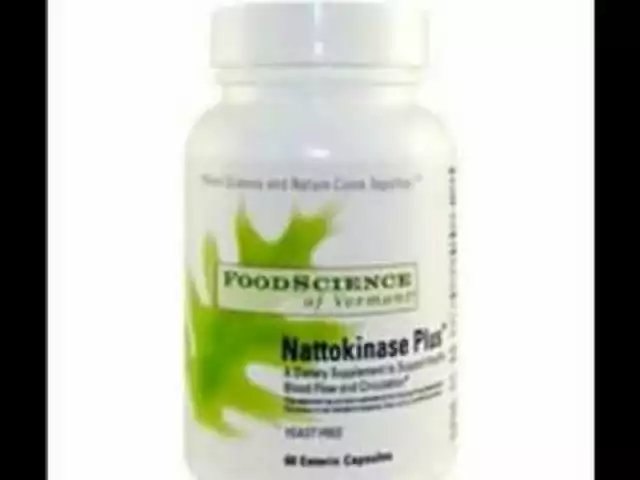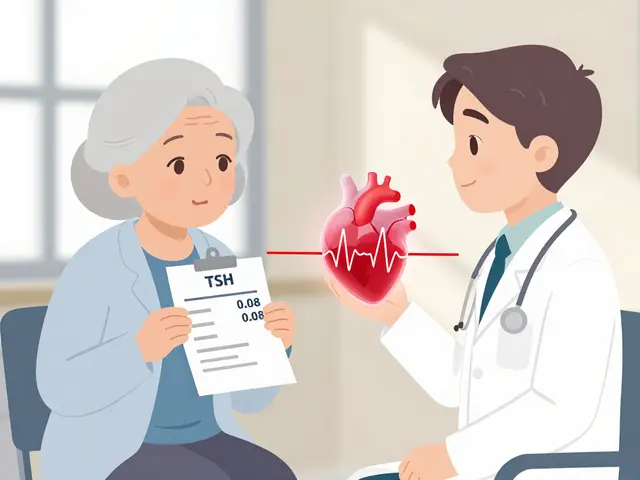Zinc might not get the same spotlight as vitamins like C and D, but it’s an unsung hero of essential nutrients. As a trace mineral, it plays a mighty role in numerous bodily functions, keeping us in tip-top shape.
While a lot of folks know zinc is good for immune support, that’s just the tip of the iceberg. It’s involved in wound healing, DNA synthesis, and even our taste and smell senses. Unfortunately, many people don’t get enough zinc from their daily diet, which can lead to various health problems.
Exploring the benefits, how to tell if you might be lacking this vital mineral, and simple ways to boost your intake, provides a clearer picture of why zinc should be a staple in your wellness routine. Stick around to uncover all you need to know about incorporating zinc for a healthier you.
- What is Zinc?
- Health Benefits of Zinc
- Common Signs of Zinc Deficiency
- How to Add More Zinc to Your Diet
- Tips for Absorbing Zinc Better
What is Zinc?
Zinc is a trace mineral that is essential for maintaining overall health and well-being. It plays a critical role in over 300 enzymatic reactions within the body, supporting functions such as immune response, protein synthesis, wound healing, DNA synthesis, and cell division. Despite its importance, the body does not store zinc, which means we need to consume it regularly as part of our diet.
People often overlook zinc when discussing essential nutrients, focusing instead on more commonly known vitamins and minerals like Vitamin C or calcium. However, zinc is just as important. It helps maintain the structural integrity of proteins and cell membranes, which is vital for protecting cells against oxidative stress and aiding in proper growth and development. Without sufficient levels of zinc, our bodies can’t function optimally, leading to potential deficiencies and associated health problems.
One of the standout roles of zinc is its impact on the immune system. This mineral is crucial for the development and function of immune cells. A deficiency in zinc can lead to a weakened immune response, making the body more susceptible to illnesses and infections. Research has shown that zinc supplementation can reduce the duration of the common cold by a significant margin, highlighting its powerful impact on immune health.
According to the World Health Organization, "Zinc deficiency is responsible for approximately 16% of lower respiratory tract infections globally." This statistic underscores the vital role zinc plays in maintaining respiratory health and preventing infection.
Zinc is also involved in sensory functions, such as taste and smell. A deficiency can lead to a reduced ability to taste and smell, which are key components of enjoying food and beverages. This connection emphasizes the broad reach of zinc's influence in our daily lives.
Dietary sources of zinc include foods like red meat, poultry, seafood (especially oysters), beans, nuts, whole grains, and dairy products. For those who struggle to get enough zinc through their diet alone, dietary supplements can be an effective alternative. It is always best to discuss with a healthcare provider before starting any supplement regimen, as too much zinc can lead to adverse effects.
Understanding the significance of zinc and ensuring adequate intake can contribute to better overall health. Including zinc-rich foods in your diet or considering supplementation can have profound benefits for your immune system, growth, and everyday bodily functions. Having grasped the importance of zinc, let’s delve into the myriad health benefits this miracle mineral has to offer.
Health Benefits of Zinc
When it comes to maintaining a healthy body, zinc plays a crucial role in numerous physiological functions. First and foremost, zinc is essential for a robust immune system. It aids in the development and function of immune cells, including T-lymphocytes, which are critical for immune responses. This is why people often turn to zinc supplements during the cold and flu season.
Beyond bolstering immunity, zinc is vital for wound healing. If you've ever used an ointment for cuts or burns, it likely contained zinc because this mineral speeds up the repair process. This is due to its role in collagen synthesis, which is necessary for skin regeneration. Additionally, zinc has anti-inflammatory properties that aid in reducing inflammation around wounds.
Zinc’s role extends to cellular metabolism as well. It plays a part in DNA synthesis and cell division, which are fundamental to growth and development, especially during pregnancy, childhood, and adolescence. But don’t think its benefits stop there; zinc also improves cognitive functions. A lack of zinc can result in impaired focus and memory since it affects neurotransmitter function in the brain.
Surprisingly, zinc supports our sensory functions too. Ever notice a loss of taste or smell when you’re not feeling well? That could be a sign of low zinc levels. This mineral is needed for the proper functioning of taste and smell receptors. Adding zinc to your diet can potentially bring back these senses more quickly if you've experienced a loss.
For those concerned about maintaining healthy skin, zinc can be a game changer. It helps to manage acne and other skin conditions by regulating oil glands and promoting clear skin. Some studies even suggest that zinc can reduce the severity of acne by balancing the hormonal impacts that can cause outbreaks.
Notably, zinc is beneficial for thyroid function by helping regulate the production of thyroid hormones. An imbalance in these hormones can lead to various health issues, including unexpected weight changes and energy levels. Ensuring adequate zinc intake can keep your thyroid working optimally.
According to the National Institutes of Health, “Zinc is involved in numerous aspects of cellular metabolism. It is required for the catalytic activity of approximately 100 enzymes and it plays a role in immune function, protein synthesis, wound healing, DNA synthesis, and cell division.”
Keep in mind that while zinc offers these incredible benefits, it only works well if consumed in appropriate amounts. Excessive zinc intake can lead to toxic effects, disrupting the balance of other vital minerals in the body, like copper. Therefore, it's crucial to consider proper dosage and possibly consult with a healthcare provider to determine your specific needs.
Common Signs of Zinc Deficiency
Recognizing the signs of zinc deficiency can be crucial for maintaining your health. While it might not be the first thing that comes to mind when you're feeling off, zinc plays such a key role in your body that lacking it can lead to a broad array of symptoms. One of the most noticeable signs is a weakened immune system. Frequent colds, infections, and slow healing wounds might all point to insufficient zinc levels.
Another telltale sign is unexplained digestive issues. You might experience a loss of appetite, which can lead to weight loss and nutritional deficiencies. It's not uncommon for those with low zinc to report nausea and diarrhea as well. Skin problems are another red flag. Acne, rashes, and dry or flaky skin can all be linked to a lack of this essential mineral. Some dermatologists suggest that adequate zinc intake can lead to healthier, clearer skin.
In more severe cases, zinc deficiency can cause hair loss. This isn't just about a few extra strands in your brush – it can lead to significant thinning or bald patches. If you've been breaking out the comb less often than usual, it might be worth considering whether you're getting enough zinc. A lesser-known effect involves your senses. Zinc is crucial for your taste and smell, so being deficient might dull these senses. Food might seem blander, and you might notice a weaker sense of smell. This can indirectly affect your appetite and enjoyment of food.
Mood swings and mental lethargy are also significant signs. Feeling unusually irritable or struggling to focus might not just be due to stress. Low zinc levels have been linked to depression and cognitive decline, particularly in older adults. Always being tired? Fatigue is another common symptom. Despite getting enough sleep, your energy levels could be dragging if your zinc intake is insufficient. Growing kids need zinc too, and a deficiency can lead to stunted growth and developmental issues.
There's also growing evidence suggesting that low zinc levels could be related to male fertility issues. Some studies have found that men with inadequate zinc may have lower testosterone levels and decreased sperm quality. Dr. Sandra McDonald, from the Nutritional Sciences Institute, states,
"Zinc is a trace element vital for numerous bodily functions, including hormonal balance and reproductive health. Ensuring adequate intake can prevent a range of health issues, from immunity problems to cognitive decline."These diverse signs showcase how integral zinc is for various bodily functions. Keeping an eye on your symptoms and consulting with a healthcare provider can help you determine if you need a zinc boost.
How to Add More Zinc to Your Diet
Adding more zinc to your diet doesn't have to be complicated. There are plenty of delicious and nutritious foods you can enjoy every day to boost your zinc intake. Let's dive into some tasty options that will help ensure you're getting enough of this essential mineral.
Seafood is one of the best sources of zinc. Oysters, in particular, are zinc powerhouses. Just six medium oysters provide a whopping 32 mg of zinc, which is more than three times the daily recommendation for adult men. Other seafood options like crab, lobster, and shrimp are also excellent choices. Not only are these foods rich in zinc, but they also provide high-quality protein and omega-3 fatty acids, which are great for your heart and brain.
If seafood isn’t your thing, don't worry. There are plenty of meat options that are rich in zinc. Beef, pork, and lamb are all great sources. A 3-ounce serving of cooked beef chuck roast provides about 7 mg of zinc. Chicken and turkey can also contribute to your zinc intake, especially dark meat cuts like thighs and drumsticks. Meat not only provides zinc but essential B vitamins and iron as well.
For those who follow a plant-based diet, there are several plant foods that can help you meet your zinc needs. Legumes, such as chickpeas, lentils, and beans, contain significant amounts of zinc. For instance, a cup of cooked lentils has about 2.5 mg of zinc. Nuts and seeds, particularly pumpkin seeds and cashews, are other fantastic options. A quarter cup of pumpkin seeds offers around 2.2 mg of zinc. Remember, plant sources of zinc are not as efficiently absorbed by the body as animal sources, so you might need to consume more of these foods to meet your daily requirement.
Dairy products also provide a good amount of zinc. Cheese and milk are easy and convenient options to add to your diet. For example, a cup of milk contains around 1 mg of zinc, while an ounce of Swiss cheese offers about 1.2 mg. Dairy is also a great way to get your daily dose of calcium and vitamin D.
Whole grains are another excellent source of zinc. Products like quinoa, oatmeal, and brown rice can contribute to your intake. A cup of cooked quinoa contains about 2 mg of zinc. Whole grains also offer fiber and other essential nutrients like magnesium and manganese, making them a healthy choice for your overall diet.
Fortified breakfast cereals can be a quick and easy way to boost your zinc intake. Many cereals are fortified with up to 15 mg of zinc per serving, which can help you meet your daily needs with minimal effort. Just make sure to check the nutrition labels to choose options with low added sugars for a healthier breakfast.
Including a variety of these foods in your diet each day can help ensure you’re getting enough zinc. If you find it challenging to meet your needs through food alone, zinc supplements are available. However, it’s always best to consult with a healthcare provider before starting any supplement regimen. They can help determine the appropriate dosage and ensure it's safe for your unique health needs.
According to the National Institutes of Health, it’s important to strike a balance, as excessive zinc intake can interfere with the absorption of other vital minerals like copper and iron.
Incorporating more zinc into your daily meals doesn't have to be a chore. With so many tasty options, you can easily make zinc-rich foods a regular part of your diet. Whether you prefer seafood, meat, plant-based sources, or fortified foods, there’s something for everyone. By paying attention to your zinc intake, you’re taking a crucial step towards better health and wellness.
Tips for Absorbing Zinc Better
When it comes to boosting your zinc levels, it's not just about how much zinc you take, but also how well your body absorbs it. There are a few important strategies to ensure you get the most out of your zinc intake. For starters, combining zinc-rich foods with the right nutrients can make a big difference. Vitamin C, for example, is known to enhance zinc absorption, so consider pairing a zinc supplement with a glass of orange juice or a serving of bell peppers.
On the flip side, some foods and substances can hinder zinc absorption. Phytates, found in whole grains, legumes, and some seeds, can bind to zinc and reduce its bioavailability. To counteract this, you can soak or sprout beans, grains, and seeds to lower their phytate content. Additionally, calcium supplements taken in large amounts at the same time as zinc can interfere with zinc absorption. Consider taking them at different times of the day.
Ironically, too much iron can also compete with zinc for absorption. If you're taking both iron and zinc supplements, clinical guidelines suggest taking them at least two hours apart. Zinc absorption is also pH-sensitive; it absorbs better in a slightly acidic environment. This means having a bit of lemon juice or vinegar in your salad might just give you that slight edge.
One lesser-known fact is that the type of zinc supplement matters. Zinc citrate and zinc picolinate are usually more easily absorbed by the body compared to zinc oxide. So, read those labels carefully when picking out a supplement. Oral health also plays a role. Gum disease or other oral issues can impair nutrient absorption; maintaining good oral hygiene can indirectly support better zinc uptake.
“A diverse diet that includes a variety of fruits, vegetables, whole grains, and lean proteins can generally meet your zinc needs,” says Dr. Jane Smith, a renowned nutritionist.Lastly, remember that moderation is key. Excessive zinc can lead to nausea and other gastrointestinal issues, and long-term high doses can even cause copper deficiency and weaken the immune system. Stick to the recommended daily allowances unless advised otherwise by a healthcare professional. Incorporating these tips into your daily routine can help you make the most of this essential nutrient and promote better health.






May 9, 2024 AT 15:00
Zinc is often overlooked, but its role in immune function, wound healing, and DNA synthesis makes it indispensable. You can find reliable sources in red meat, poultry, and especially oysters, which are zinc powerhouses. Legumes, nuts, and whole grains also contribute, though their bioavailability is lower due to phytates. Pairing zinc‑rich foods with vitamin C can improve absorption, so a squeeze of lemon on a bean salad is a smart move. Keep an eye on portion sizes, as excessive zinc can interfere with copper metabolism. If you suspect a deficiency, a blood test can confirm your status. Supplements are useful but should be taken under medical guidance to avoid toxicity. Overall, a balanced diet with diverse zinc sources supports many physiological processes.